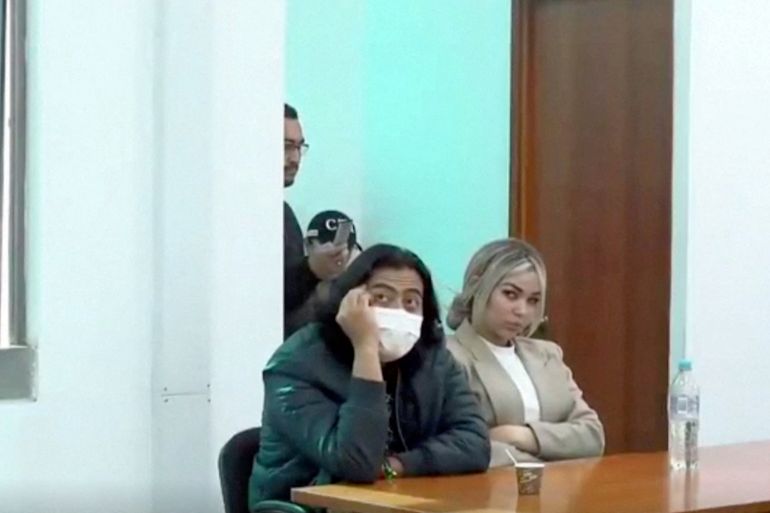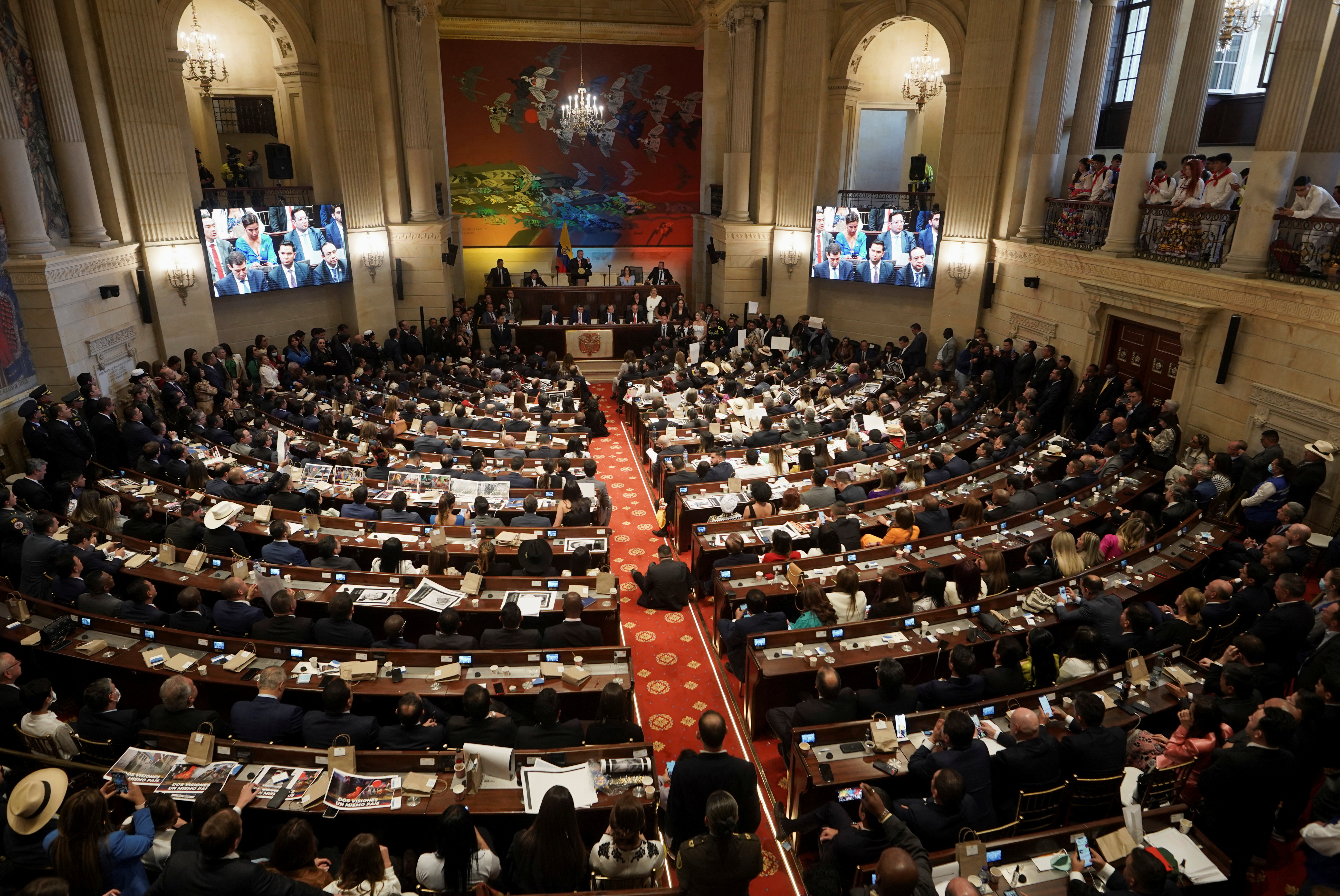
Photo: New York Times
- Colombia’s Presidential Scandal Explained
Nicolás Petro, the Colombian president’s son, is being prosecuted for taking money from people with connections to prominent drug traffickers. These accusations emerged from Daysuris Vásquez, Nicolás’s ex-wife, who interviewed Semana detailing his shady political deals. One of the individuals she named was Santander Lopesierra, a former drug trafficker and politician who was extradited to the US and continues to be influential in Colombian politics. Lopesierra donated approximately $140,000 to help Gustavo Petro’s presidential campaign. Instead, Nicolás kept the money for himself. Allegedly, Nicolás pocketed around $394,000 that did not originate from his governmental salary as an Atlantico deputy.
- The Ongoing Developments in Nicolás's Case and President Petro's Response
Since Vásquez’s accusations are considerable political accusations, Colombia’s attorney general launched an investigation to discover the truth. Eventually, both Nicolás and his ex-wife were both arrested. Mario Andres Burgos, the main prosecutor, assured Nicolás would cooperate with the investigation upon his conditional release. So far, Nicolás has pleaded not guilty but acknowledged misreports in many of his father’s election campaign funds. By collaborating, Nicolás might be hoping to receive a lighter sentence which could be around 12 to 20 years in jail. President Petro has denied any knowledge of his son’s dealings. In a statement on X, President Petro said that no one is above the law and will continue his commitment to improving Colombia.

Photo: Al Jazeera
- What can happen to President Petro's Peace Plan?
The amount of backlash the Petro family will receive from the scandal could compromise the “Total Peace” campaign promise. Petro’s “Total Peace” policy consists of minimizing violence, protecting civilians, and eliminating armed groups in Colombia. Considering that this policy was a fundamental campaign promise, Petro must deliver to prevent his approval rating from plummeting. With his son’s arrest and subsequent investigation into the family, President Petro will have too many distractions to address his “Total Peace” promise. The most significant political implication is that the National Liberation Army (ELN), the biggest rebel group in Colombia, might abandon the ceasefire created alongside the government. The reasoning behind this is that the ELN could see that Petro might focus more on his family rather than advancing negotiations. As a result, the ELN could break their part of the ceasefire seeing that they could gain more concessions with a weakened government. Such a result would be detrimental to Petro because peace would be harder to restore at such a stage.
- Previous Historical Instances Similar to the Petro Scandal
Historically, there has been a similar event that resembles President Petro’s current situation. In 1995, audio tapes revealed that President Ernesto Samper’s representatives had direct conversations with the Cali Cartel. While never formally charged in Colombia, the US claimed to have discovered President Samper received around $6.5 million in campaign money for the 1994 election. However, there was a massive investigation that became known as Proceso 8.000. Proceso 8.000 became an enormous political distraction for President Samper. Rebel groups such as the Revolutionary Armed Forces of Colombia (FARC) used this to gain power in Colombia. The situation became so dire that paramilitary groups had to provide security to the people.
- President Petro’s Current Political Dilemma
The current evidence is not strong enough to impeach President Petro. However, this does not mean incriminating information can appear in the following weeks or months since Nicolás's case is ongoing. If there is evidence against the President, there are two political possibilities. One is that the President’s allies in Congress might align with the opposition to obtain enough votes to impeach Petro. Another is that Petro’s Pacto Historico coalition could pressure the President to resign.
Even if there is no incriminating information, there are still other political implications the President needs to consider. So far, the President’s approval rating has plunged 20 points. What this figure represents is that only one-third of Colombians approve of him. In addition, Congress has become fractured due to the developments from this controversy. Pacto Historico does not have a majority in both chambers of the Colombian parliament. To get any legislation passed, the President’s party depends on coalitions. The most powerful of these parties is the center-left Liberal Party. These coalition parties know that the Colombian people disapprove of the President. If they are to preserve their political leverage in the future, they will remove their political support for Petro. Therefore, radical policies for a peace plan might become more difficult for the President to implement. Knowing this, the President will most likely be cautious politically, only prioritizing more unilateral issues. Overall, Petro's "Peace Plan" is politically divisive, meaning there is a high chance that this controversy hinders his initial vision for peace.
The Nicolás Petro controversy could make many Colombians skeptical of any advancement in any peace agreement. Any possible Petro-led deal could be blocked by Congress or rejected via public referendum. The most significant outcome is the potential resurgence of hostilities, leading to increased violence rates in Colombia, especially in rural areas. If this were to happen, it might be years or decades before rebel groups and the central government reach the progress achieved so far. When accounting for Colombia’s long history with rebel groups, this might be a strong possibility if negotiations go awry.

Photo: Reuters
- Conclusion: Preserving Peace Amidst Controversy
The unfolding Petro controversy has only added more challenges to his pursuit of peace in Colombia. President Petro knows that he no longer processes the same power as before, necessitating careful political moves to preserve peace in Colombia. This controversy will be a litmus test to demonstrate the president’s leadership qualities and political acumen. For the sake of the Colombian people, President Petro can hopefully navigate this situation in a way that maintains peace. The ELN’s ceasefire is the closest Colombia has gotten to achieving complete peace. All of this could change because of Nicolás’s actions. While this dynamic seems unfair, it underscores the intricacy of politics. Thus, these following weeks and months will be vital for President Petro and Colombian peace efforts.
Share This Post On
0 comments
Leave a comment
You need to login to leave a comment. Log-in


